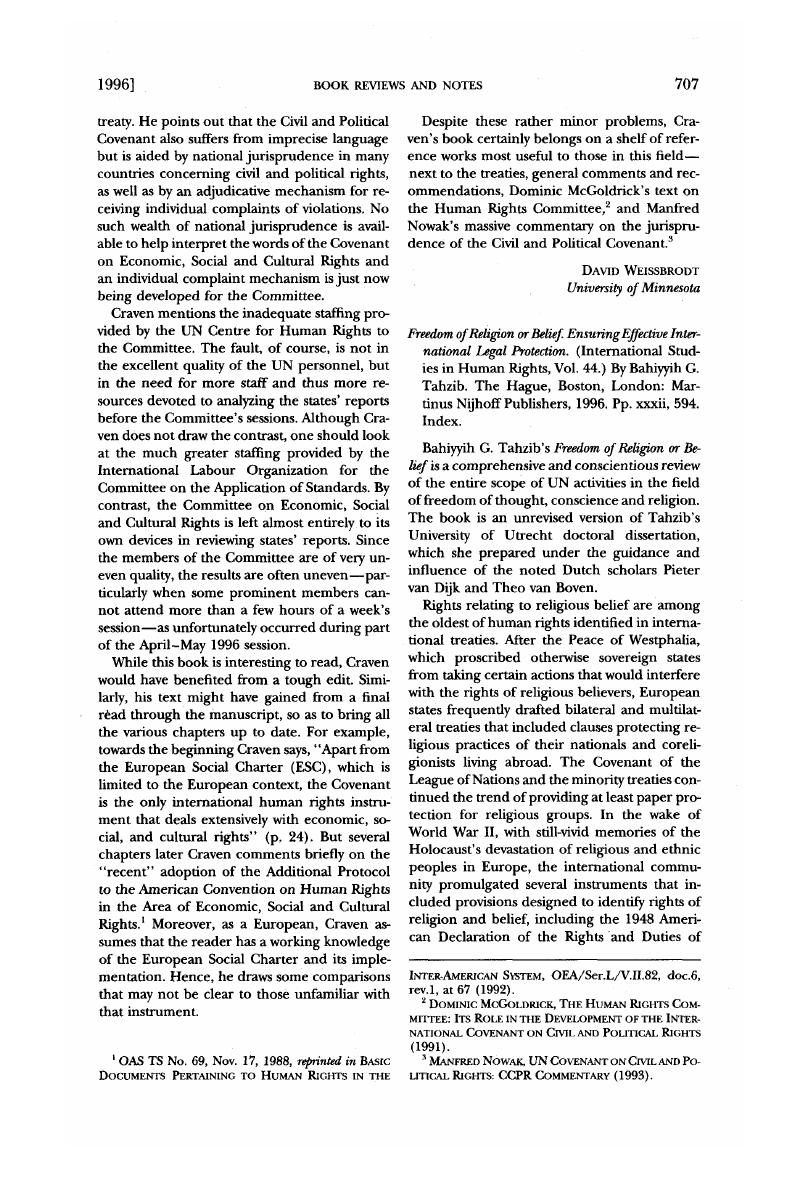Published online by Cambridge University Press: 27 February 2017

1 Article 18 provides, in pertinent part:
1. Everyone shall have the right to freedom of thought, conscience and religion. This right shall include freedom to have or to adopt a religion or belief of his choice, and freedom, either individually or in community with others and in public or private, to manifest his religion or belief in worship, observance, practice and teaching.
2. No one shall be subject to coercion which would impair his freedom to have or to adopt a religion or belief of his choice.
3. Freedom to manifest one’s religion or beliefs may be subject only to such limitations as are prescribed by law and are necessary to protect public safety, order, healdi, or morals or the fundamental rights and freedoms of others.
2 In the footnote in which she comes closest to asserting that international standards have had an actual impact on domestic law, Tahzib states that the standards have been applied by domestic courts (p. 79 n.58). Yet her evidence to support this assertion consists of citing not actual cases, but secondary sources—the most recent of which is almost 30 years old.